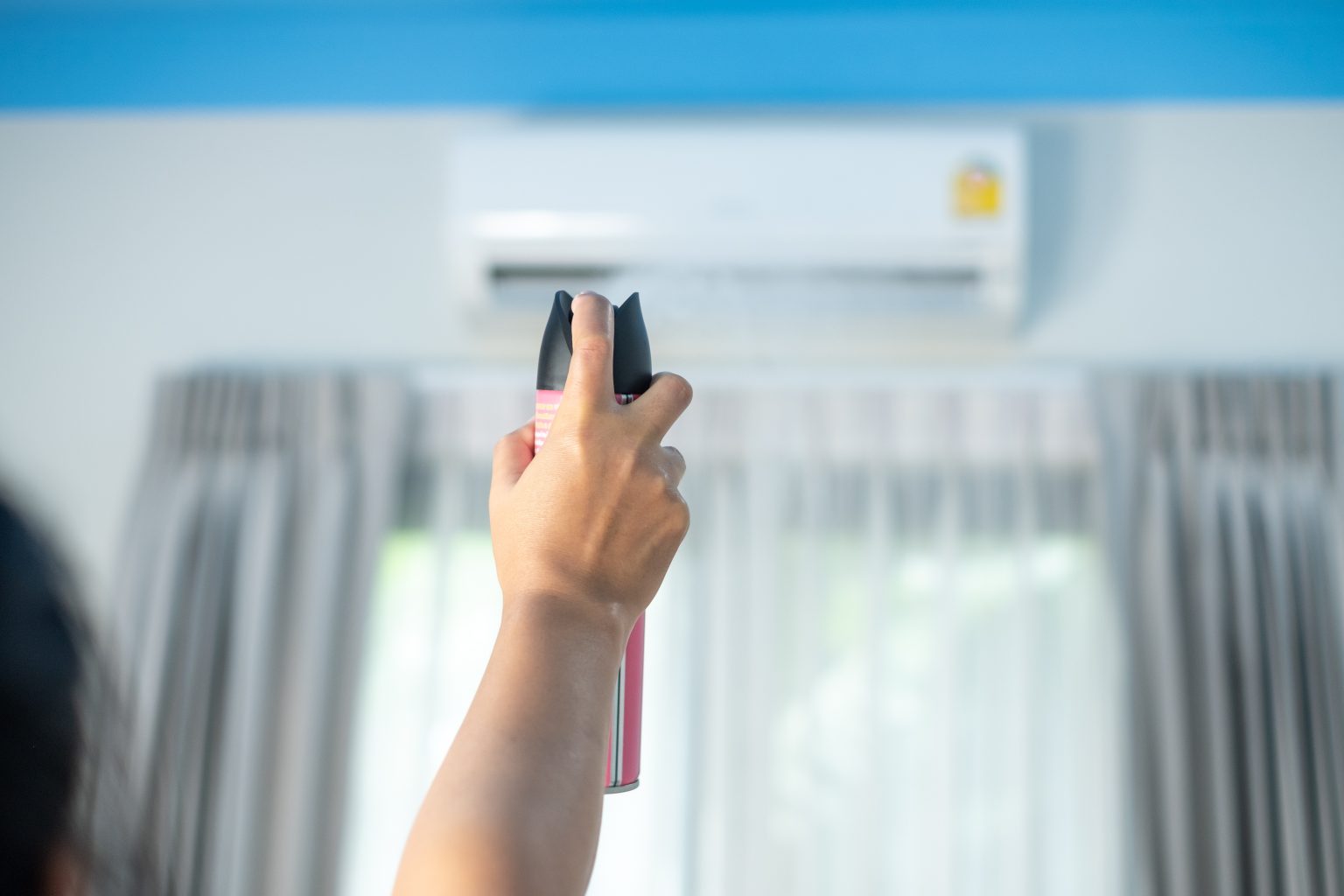
House smells musty every fall? Learn why it happens and get proven, long-lasting fixes to banish odors for good. Diagnose, prevent, and breathe easier. Fix it today.
First, what does musty really mean?
If your house smells musty, you are noticing a stale, earthy, or slightly sour odor that often shows up when moisture meets organic material. Think damp basement, wet carpet, or a forgotten load of laundry. The scent usually comes from microscopic compounds created by mold, mildew, and bacteria when they digest dust, skin cells, wood fibers, and other everyday materials. A musty odor is a sign, not a diagnosis. It does not always mean you have a major mold problem, but it does mean you have extra moisture or an odor reservoir that needs attention.
Why fall triggers musty odors in Wisconsin and Illinois
In southeast Wisconsin and northeast Illinois, fall brings cooler nights, warmer days, and more wet leaves and rain. That mix means indoor humidity can spike as you close windows and start running the furnace. Warm indoor air hitting cool surfaces raises the chance of condensation. Leaves and debris can also clog gutters and trap moisture near your home. If your house smells musty as soon as the weather shifts, you are likely dealing with seasonal moisture and stale air that wake up old odors trapped in carpets, furniture, and basements.
- Cool nights and warm days create condensation on walls, windows, and ductwork.
- Closing windows reduces ventilation and concentrates odors indoors.
- Furnaces pull air over dust- and moisture-laden surfaces, spreading smells.
- Wet leaves and clogged gutters push water toward foundations and crawl spaces.
- Carpets and upholstery absorb fall humidity and can release trapped odors.
The most common sources of a musty smell by area
Basements and crawl spaces
Basements often hold the key when a house smells musty. Concrete is porous and can wick moisture. Add cooler temperatures and limited airflow, and odors build quickly. Crawl spaces without a vapor barrier can allow soil moisture to rise into living areas.
- High humidity in unfinished areas above 50 percent relative humidity
- Condensation on foundation walls and cold water pipes
- Wet or dirty sump pits and failing sump pumps
- Poorly directed downspouts and clogged gutters
- Mildew on wood joists or paper-faced insulation
Carpets, area rugs, and padding
Carpet fibers and padding are like sponges. They absorb humidity and everyday spills. In fall, tracked-in rain and leaf debris add organic matter that feeds odors. Pet accidents from summer can resurface as humidity rises. If your house smells musty only on certain floors or rooms, carpet and padding are strong suspects.
Upholstery, mattresses, and soft goods
Couches, chairs, mattresses, and curtains trap moisture, body oils, and dust. Without regular deep cleaning, they can release a musty scent when windows close and air recirculates.
Bathrooms and laundry rooms
Leaky wax rings, slow drains, damp bath mats, and lint behind the dryer can create a persistent musty odor. If an exhaust fan is weak or not used, moisture lingers, and smells stick to surfaces and fabrics.
Kitchens and hidden moisture points
Check the fridge drip pan, sink cabinet, dishwasher supply line, and the caulk along the backsplash. A small, slow leak can saturate wood and particleboard, creating a stubborn musty smell that grows stronger in fall.
HVAC systems and ductwork
Dusty evaporator coils, dirty filters, damp drain pans, and uninsulated ducts running through cool spaces can add to the odor load. When the blower runs more often in fall, any smell near the system gets pushed throughout the home.
How to diagnose the source fast
Finding the real cause saves time and money. Use a simple, step-by-step plan to track the odor to its source.
- Pinpoint the zone. Walk room by room, sniff low near floors and baseboards, then higher near curtains and vents. Note where it is strongest.
- Check the basement and crawl space. If the odor is stronger downstairs, start there. Look for visible moisture, rusty metal, and damp concrete.
- Measure humidity. Use a basic hygrometer to check each space. Aim for 30 to 50 percent relative humidity. Anything higher can fuel odors.
- Inspect soft surfaces. Smell carpets, rugs, couches, and mattresses up close. If your nose gets a stronger musty hit nearby, you found a reservoir.
- Open access panels. Check under sinks, behind the washing machine, next to the water heater, and near the furnace for damp spots and dust buildup.
- Test vents and returns. With the system running, smell the air at supply registers and the return. If the air there smells musty, address the HVAC.
- Use light and touch. Shine a flashlight across surfaces to spot sheen from moisture. Press paper towels on suspect areas to detect dampness.
Quick tests you can do in 10 minutes
- Plastic square test on concrete: Tape plastic to the floor and check for condensation after a day. Moisture under the plastic means vapor is rising.
- Paper towel test on carpet: Press a dry white towel firmly on the carpet for 30 seconds. If it picks up moisture or odor, deep cleaning is needed.
- Condensate check: Look for standing water or slime in the HVAC drain pan or hose.
- Ventilation check: Hold a tissue near bath fans. If it does not pull in, the fan is weak and moisture will linger.
Fixes that actually last
Control moisture at the source
Odor control starts with moisture control. The goal is to stop water from getting in, reduce humidity, and keep air moving.
- Gutters and downspouts: Clean gutters and extend downspouts at least six feet from the foundation. Clear leaves every few weeks in fall.
- Grading: Ensure soil slopes away from your home. Low spots collect water and drive moisture through walls.
- Basement sealing: Seal obvious cracks and apply a breathable masonry sealer on interior walls if needed. Avoid trapping moisture behind non-breathable paints.
- Vapor barrier: Cover exposed crawl space soil with a thick plastic barrier and seal seams. Consider insulating and sealing vents if recommended by a pro.
- Dehumidifiers: Run a properly sized unit in basements and crawl spaces. Set to 45 to 50 percent relative humidity. Clean coils and filters regularly.
- Ventilation: Use bath and kitchen fans during and after showers or cooking for at least 20 minutes. If your fans are weak, replace them with higher CFM models.
- Pipe and duct insulation: Insulate cold water lines and ducts in cool areas to prevent condensation.
Deep clean the odor reservoirs
Once moisture is under control, remove the odors trapped in carpets, rugs, and upholstery. This is where professional cleaning pays off, because DIY surface cleaning often leaves odors behind. Marathon Carpet Cleaning uses industry-leading hot water extraction and effective cleaning agents that reach deep into fibers and padding to remove soils, bacteria, and odor molecules. If your house smells musty mostly when you walk on carpets or sit on furniture, deep cleaning makes a noticeable difference.
- Carpets and rugs: Vacuum with a HEPA vacuum, then schedule hot water extraction with proper pre-treatment. Address pet accidents with enzyme-based solutions.
- Padding: If odors persist after cleaning, consider replacing affected padding in small areas.
- Upholstery: Clean couches, chairs, and mattresses with methods appropriate to the fabric. Regular maintenance prevents odors from building up.
- Hard floors: Mop tile, vinyl, and laminate with a neutral cleaner. Clean grout lines and edges where dust and moisture collect.
Marathon Carpet Cleaning serves homeowners and businesses in Racine, Union Grove, Burlington, Waterford, Sturtevant, Mount Pleasant, Caledonia, Kenosha, and surrounding southeast Wisconsin areas. They also extend services to northeast Illinois, including Antioch, Gurnee, Waukegan, and nearby communities. Their certified team provides on-site consultations, uses high quality equipment and cleaning products, and backs work with a 100 percent satisfaction guarantee.
HVAC maintenance matters
Your HVAC system moves air and odors throughout your home. A little maintenance can stop musty smells from spreading.
- Filters: Use the right size and a MERV rating your system can handle, often MERV 8 to 13. Change on schedule.
- Coils and drain: Clean evaporator coils and flush the condensate line to stop slime and smells.
- Ducts: Seal obvious leaks in accessible ducts with mastic. Consider professional duct cleaning if you see heavy dust, debris, or mold growth.
- Humidifiers: If you run a whole-home humidifier in winter, clean or replace the pad and keep indoor humidity under 50 percent.
Odor neutralizers vs real remediation
Sprays, candles, and plug-ins only mask the problem. Ozone generators and foggers can be risky if misused and may not solve the source. Effective odor removal always pairs moisture control with proper cleaning of the materials holding the smell. If your house smells musty year after year, invest in fixes that remove the cause rather than cover it up.
Fall home checklist to prevent a musty house
- Clean gutters and extend downspouts away from the foundation.
- Rake leaves away from the house and keep outdoor drains clear.
- Seal small cracks in foundation walls and floors.
- Run a dehumidifier in the basement and monitor humidity weekly.
- Vacuum thoroughly with a HEPA vacuum, then schedule carpet and upholstery cleaning.
- Wash or replace bath mats, shower curtains, and fabric liners.
- Clean the fridge drip pan and the area under the refrigerator.
- Check under sinks for slow leaks and dry any damp cabinets.
- Replace HVAC filters and clean the condensate drain line.
- Test bath and kitchen exhaust fans and upgrade if airflow is weak.
- Inspect the dryer vent for lint buildup and secure the duct connection.
- Open windows on dry, breezy days to air out the house.
When to call the pros
If you have tried the basics and your house still smells musty, a professional assessment can save time and prevent damage. Marathon Carpet Cleaning offers residential and commercial cleaning services tailored to your space, from carpets and area rugs to tile, grout, vinyl, laminate, hardwood, and upholstery. Their certified technicians can identify odor reservoirs, select the right cleaning approach, and recommend moisture control steps that last.
- Persistent musty odor even after airing out and cleaning
- Visible mold patches on walls, ceilings, or furniture
- Damp or dark stains that keep returning on carpets or walls
- Humidity above 55 percent that you cannot lower
- Odor coming from HVAC vents or returns
- Recent water intrusion from leaks, storms, or a sump failure
Marathon Carpet Cleaning serves homes and businesses throughout Racine and Union Grove, along with Burlington, Waterford, Sturtevant, Mount Pleasant, Caledonia, Kenosha, and nearby communities. In northeast Illinois, they help clients in Antioch, Gurnee, Waukegan, and more. Every project comes with a 100 percent satisfaction guarantee, and the team provides on-site consultations to create a plan that fits your space and budget.
FAQs: what to know when your house smells musty in fall
Is a musty smell always mold?
Not always. Musty often points to moisture plus organic material. That might be mildew, bacteria, or mold. Either way, it means conditions are right for growth. Fix moisture first, then clean or remove materials that hold the odor.
Will bleach fix a musty smell?
Bleach can lighten stains on hard, nonporous surfaces, but it is not a good solution for porous materials like wood, drywall, carpet, or fabric. It can leave behind residue and does not reach deep odor reservoirs. Use targeted cleaners and focus on moisture control. For soft surfaces, professional deep cleaning is more effective.
Can I just open windows to clear the odor?
Opening windows helps on dry, breezy days, but it is a temporary fix. On humid days, it can make the problem worse. Ventilate wisely and address the source to stop the smell from returning.
Do I need duct cleaning?
Sometimes. If you see heavy dust, debris, or visible mold in ducts, or if odors are strongest at vents, an inspection is smart. Pair any duct cleaning with coil and drain maintenance and filter upgrades. Address moisture first.
What humidity level should I target?
Keep indoor humidity between 30 and 50 percent. In fall, aim for around 45 percent. Use a hygrometer to monitor and run dehumidifiers or fans as needed.
How often should I clean carpets and upholstery?
High-traffic homes usually benefit from professional carpet cleaning every 6 to 12 months and upholstery cleaning every 12 to 24 months. If your house smells musty or you have pets, kids, or allergies, more frequent cleaning can help.
Is it safe to live with a musty smell?
Musty odors can irritate some people and signal conditions that may lead to mold growth. It is best to find and fix the cause. If anyone in the home has asthma or allergies, take action quickly.
Why choose Marathon Carpet Cleaning
When your house smells musty, you want solutions that last. Marathon Carpet Cleaning is a certified cleaning company based in Racine with an additional location in Union Grove. They serve residential and commercial clients across southeast Wisconsin and northeast Illinois. Services include deep carpet cleaning for homes and businesses, area rug care, tile and grout cleaning, vinyl, laminate, and hardwood floor cleaning, and upholstery cleaning for couches, chairs, and mattresses. Their commercial cleaning services are tailored for offices and apartment buildings. With industry-leading equipment, quality products, certified technicians, and a 100 percent satisfaction guarantee, Marathon Carpet Cleaning focuses on results you can see and air you can feel. They handle jobs of all sizes and provide on-site consultations to assess your needs and craft a practical plan.
Ready to breathe easier this fall?
If your house smells musty every fall, it is telling you something. Tackle moisture, clean the materials that hold odors, and keep air moving. For a deeper reset and a plan that lasts, schedule a professional assessment and cleaning with Marathon Carpet Cleaning. Whether you are in Racine, Union Grove, Burlington, Waterford, Sturtevant, Mount Pleasant, Caledonia, Kenosha, Antioch, Gurnee, Waukegan, or a nearby community, their team is ready to help you banish musty odors and enjoy a fresher, healthier home.


